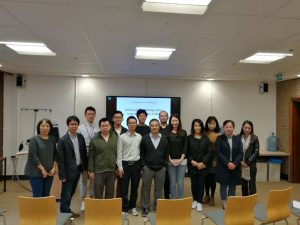It is a great pleasure to be here, of course, especially as the visit is very short, just two weeks. I have to say, I am pretty impressed by the friends here, Cecilia Wong, Lei Wang, Bin Sun, Nuno Pinto, etc. just so many and so hard to list all. I appreciate the kind supports of the university, and thanks to MUI, GDI, for hospitality, nice food, etc.. Two week stay is too short for me to understand Manchester, the name I have known well even when I was in primary school in China. I love to be here. As an urban geographer and planner (If I can say so), I have to say, the most impressive thing about Manchester at this moment, is the new constructions, the energetic people, and the typical vibrancy. I am familiar to such atmosphere, as I come from China, where full of new changes and new growth, with an insanely fast speed. We are the same: not afraid of changes, dare to face them. But there are so many for China to learn from Manchester, from UoM, and people here, as the urbanism of China is just fledgling, and there are so long a distance to go, at least as I noted in Manchester. In this vein I am glad there are so many Chinese students here, they come to learn, share and enjoy, and they will take back needed ideas for future China. In the same vein, I will be back soon, and take back something to China, such as new ideas of cooperations, friendships, and a feeling of ‘place attachment’ or belongings. See you, hopefully soon, great Manchester.

